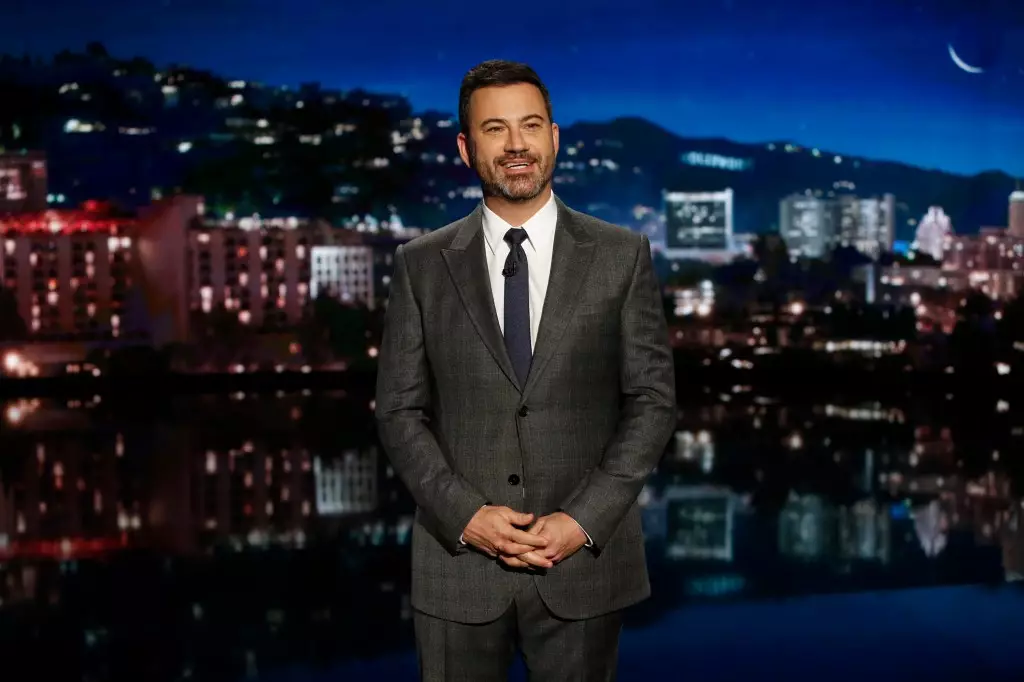The recent decision by Disney to indefinitely suspend *Jimmy Kimmel Live!* marks a watershed moment in American television history. This isn’t just about pulling a late-night show; it’s an alarming indicator of how corporate power intersects with the fragile landscape of free speech. Up until this point, late-night hosts have enjoyed a relatively freer platform to express satire, critique, and controversial opinions. Now, however, the lines are blurring between responsible broadcasting and censorship. Disney’s move, reportedly driven by Kimmel’s comments concerning political violence and inflammatory rhetoric, signifies a shift toward suppressing voices that challenge dominant narratives. The move has sent ripples through the media ecosystem, prompting debates that go beyond ratings and profit margins—what does it say about the growing influence of corporate interests over the First Amendment rights of comedians and commentators? The silence on Kimmel’s show feels like a warning shot, hinting at a future where political commentary might be sanitized to appease powerful factions.
Friction Between Freedom and Corporate Caution
The crux of this controversy lies in Kimmel’s nuanced critique of right-wing politics, particularly his attempt to unpack the complicated political aftermath of a tragedy involving Charlie Kirk’s supporter. Kimmel’s words, which aimed to differentiate between the shooter and political supporters, unfortunately became collateral in a broader cultural war. The reaction was swift: FCC Chairman Brendan Carr called Kimmel’s rhetoric “sickening,” adding an ominous tone that suggests governmental intervention could follow. Yet, the episode exposes a dangerous precedent—where the line of acceptable discourse is rapidly shrinking under the weight of political and corporate interests. Monetizing outrage has become a norm; now, the consequences for speaking one’s mind threaten to strip comedians like Kimmel of their platforms. This incident underscores a wider societal concern: the erosion of spaces where uncomfortable truths can surface without fear of censorship or retaliation from powerful stakeholders.
The Cultural and Political Ramifications
Complex questions arise from the Disney decision, revealing much about America’s politicized media environment. Critics argue that Disney’s capitulation might be motivated by fear of legal repercussions or public backlash, possibly both. The timing—nine months after settling a politically charged defamation lawsuit with former President Trump—raises suspicion about corporate vulnerabilities and strategic caving. Should corporations, especially media giants, wield their power to silence dissent in fear of offending particular audiences or political figures? Or is this a necessary step toward curbing the amplification of harmful rhetoric? For Kimmel, this isn’t merely a career setback but a test case for the future of free speech in entertainment. His contract runs through 2026, yet his willingness to continue in such an environment is now questionable. Will he, or others like him, find it worth risking professional and personal freedoms in a landscape increasingly dominated by self-censorship? The broader cultural tension hinges on whether the pendulum will swing back toward open dialogue or continue to retreat into sanitized content, dictated by the loudest and most powerful voices.
The Bigger Picture: Power, Profit, and the Future of Discourse
This controversy ultimately encapsulates a larger battle between corporate interests and the democratic ideals of free expression. Disney’s unprecedented action appears to prioritize its corporate image over the nuanced, often uncomfortable realities that political discourse requires. While companies argue that they are merely protecting their brand, they inadvertently set a dangerous precedent—encouraging a climate where speech is selectively suppressed to preserve profit or avoid controversy. The fallout extends beyond Kimmel’s immediate situation; it’s a stark reminder that private corporations hold incredible sway over public discourse, for better or worse. As voices like Colbert’s remain quiet due to scheduling conflicts, and others consider their own futures, the landscape of late-night comedy and political satire risks becoming overly cautious and homogenized. If the cost of dissent becomes too high, society may find itself retreating into echo chambers, deprived of the honest, critical commentary that keeps democracy vibrant.
In this moment of crisis for free speech, it’s vital to question whether the foundation of our discourse can withstand the pressures of profit and political expediency. How long before others follow suit, silencing voices that challenge the status quo? The true impact of Disney’s repressive stance will be measured not just by Kimmel’s absence but by the enduring health of open, honest debate in American culture.
